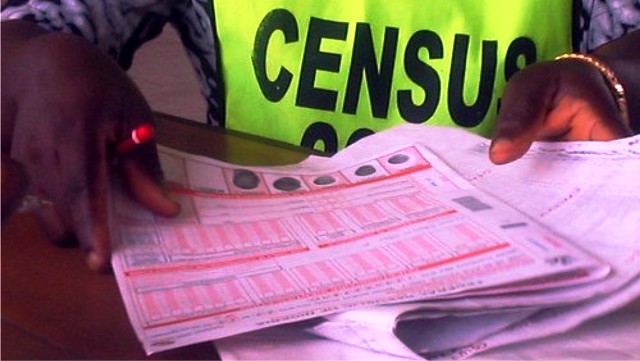Editorial
No To National Census In 2018

Recent reports credited to the National Population Commission (NPC), revealed that the commission has proposed 2018 for the national census exercise, after the last one in 2006, which till date is still riddled with controversies.
The commission’s Chairman, Chief Eze Duruiheroma reportedly told the Senate Committee on Population and National Identity that the NPC was ready to conduct a fresh national head-count, if only the Federal Government would oblige the body N222 billion budget proposal to execute the exercise, next year.
The NPC’s boss further said that but for paucity of funds, the head-count would have been held in 2016, a decade after the last exercise, in line with best international practice and convention. A shift to 2017, he further said, was still not feasible due to dearth of funds.
Explaining the commission’s financial predicament, the NPC’s helmsman said that for the commission to do a thorough job this time, all logistics: manpower, finance, surveys, researches, documentations, sensitisation, publicity, training and re-training of personnel, among others, must be put in their proper perspective in order to avoid the anomalies that characterised past exercises. We cannot but agree entirely with Duruiheroma.
While The Tide appreciates the hiccups usually associated with the smooth, successful and a generally acceptable head-count exercise, our experiences in post-Nigeria independence era, especially in the last two or three decades, indicate that the Chief Duruiheroma-led commission must as a matter of national expediency and priority conduct a credible census, generally acceptable by all segments of the country, despite the differences in geography, history, politics or religion.
To achieve this, therefore, the timing of the census must be taken into serious consideration. We are aware that the 2019 general elections timetable was recently released by the Independent National Electoral Commission (INEC) and for this reason, a national project such as census cannot and must not clash with another very vital national project such as general elections.
We are particularly appalled by the insensitivity of NPC to propose or fix a census a year preceding a general election, especially against the backdrop that Nigerian political gladiators being who they are, are most likely to hijack such exercise for their political interest. Cases abound in the past where the politicians short-changed the process of conducting census for their personal or party interest and we don’t want a repeat of such anomaly this time around.
Perhaps, and more importantly is the fact that it will be very weighty for the Federal Government to embark on the two capital-intensive programmes (census and elections) within such a short period. Enough spacing is imperative and therefore, we recommend such.
Our candid position is that a new administration other than the current one, after its inauguration should conduct the next census when the elections and litigations that follow may have been resolved and the new government settles down for serious business.
Without any prejudice, we fully endorse the views expressed by no less a personality than a top-ranking member of the APC-led Federal Government, Yakubu Dogara, the Speaker of the House of Representatives, who posited that conducting census in 2017 will obviously create much anxiety and heighten tension amongst the political class. We salute his courage, wisdom and boldness.
The Tide, indeed, shares Dogara’s sentiments as we believe that if the census exercise is conducted next year, it could precipitate national crisis that could mar the 2019 general elections.
Besides, the nation’s economy is in dire strait and could hardly carry two gigantic national projects of such magnitude.
Our take, therefore, is that Nigeria cannot and must not embark on a crash programme of conducting a head-count without adequate planning and funding that would translate to a hitch-free and successful exercise.
Between 1962 and 1963, the then Tafawa Balewa administration made several attempts to conduct a census but to no avail.
In 1973, the military dispensation conducted one but it was greeted with cynicism and controversies and was eventually cancelled. Nigerians, till date, are still striving to accept the result of the last head-count of 2006.
Hence, we must get it right this time or never.
Editorial
Resolve Rumuwoji Market Issues, Others

Editorial
As NDG Ends Season 2

Editorial
Beginning A New Dawn At RSNC

-
Politics3 days ago
2027: NIGERIANS FAULT INEC ON DIGITAL MEMBERSHIP REGISTER DIRECTIVE
-

 Environment3 days ago
Environment3 days agoLAWMA Director Says Sweeping Reforms Have Improved Waste Collection
-
Politics3 days ago
LP Crisis: Ex-NWC Member Dumps Dumps Abure Faction
-

 Politics3 days ago
Politics3 days agoUmahi Dismisses Allegations On Social Media, Insists On Projects Delivery
-

 Sports3 days ago
Sports3 days agoAbia Not Sure To Secure continental Ticket
-
Sports3 days ago
La Liga: Yamal Records First Career Hat-trick
-
Politics3 days ago
NATASHA ELECTRIC VEHICLES INITIATIVE IN KOGI CENTRAL
-

 Sports3 days ago
Sports3 days agoPSG Extend Lead In Ligue 1

